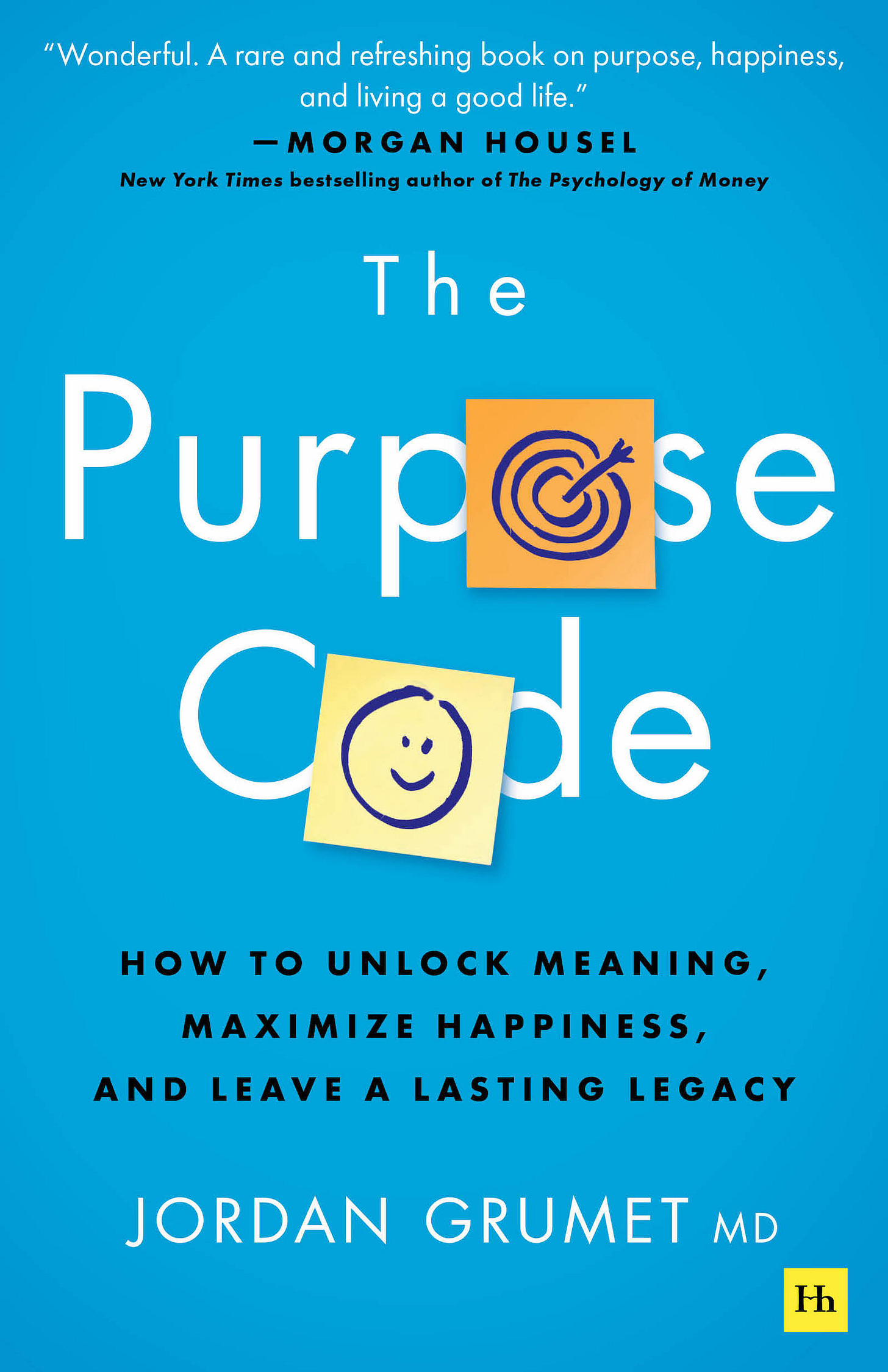Three Reasons Not to Quit Your Unfulfilling Career
How to build a life of purpose without blowing up your paycheck, your résumé, or your sanity.
Every week, someone tells me, “I want to live with more purpose—but I’m stuck in a job that drains me.”
They assume I’m going to say: “Quit. Go chase your passion. Pivot into a life of purpose.”
But I usually say the exact opposite.
Because in most cases, you don’t have to leave your career to build a purposeful life. In fact, staying might be the best way to find meaning and stability—without blowing up your life, your finances, or your identity.
Here’s the truth: I believe there are three powerful ways to turn an unfulfilling career into one that feels meaningful—without having to walk away from your current path.
1. Find Your Little p Purpose (Outside of Work)
When people say, “I don’t feel purpose in my job,” they usually think the solution must come from work. But one of the most effective strategies is to look outside of work—to start with what I call little “p” purpose.
Little p purpose is process-oriented. It’s the stuff that lights you up. It’s joyful, absorbing, intrinsically rewarding. It’s not about achievements or outcomes—it’s about loving the thing while you’re doing it.
For me, during my years practicing medicine, I often felt like something was missing. I was doing good work. I was helping people. But it didn’t light me up the way I wanted it to.
So outside of medicine, I started blogging. Just for me. Just for fun.
And something surprising happened: a doctor-focused website noticed my writing and asked me to contribute—for $500 per post. Suddenly, something that began as a side interest not only brought me joy—it became part of my career.
That’s the magic of little p purpose. It starts outside of work. But sometimes, it circles back and reshapes your professional life in ways you never imagined.
2. Use the Art of Subtraction
The next tool is one I return to often: the art of subtraction.
Here’s how it works:
Write down every role and responsibility you have in your current job. All of it. The emails, the meetings, the on-call weekends, the paperwork, the parts that make you dread Mondays.
Now start subtracting.
Draw a line through the tasks you hate.
Circle the ones you love, or at least like.
Now ask: Can I do more of the stuff I enjoy and less of the rest?
When I did this exercise with my own career, I realized I didn’t like owning a practice. I didn’t like nursing home work. I really didn’t like being on call. But I loved hospice medicine. That was the part of my career I would’ve done for free.
If I’d wanted to stay in traditional medicine, the obvious move would’ve been to shift into full-time hospice care. It was a chance to subtract everything else and double down on what gave me meaning.
You might not be able to erase every unpleasant part of your job—but you can be strategic about focusing on what gives you energy instead of what drains it.
3. Innovate Within Your Career
When all else fails—or when the system is too rigid—you can try a third strategy: innovate.
At one point in my career, I was overwhelmed. The administrative burden of being a general internist was crushing me. The charting. The EMR. The endless red tape of insurance billing.
So I built something new: a concierge practice.
That meant instead of dealing with insurance companies, I had a small panel of patients who paid a yearly fee to retain me as their doctor. I worked directly for them. No middlemen. No coding battles. No meaningless checkboxes.
It radically changed how I felt about medicine. The practice of medicine didn’t change—but my relationship to it did.
I removed the worst parts. I regained control. And I started loving my work again.
You don’t have to start your own business to innovate. Sometimes innovation means changing teams. Pitching a new role. Reorganizing your schedule. Advocating for different responsibilities. It’s about shifting the structure around your work so that it fits you better.
So Should You Stay?
Maybe.
The world tells us the answer to career unhappiness is to jump ship. Start over. Find something new that sets your soul on fire.
And sometimes, that’s the right move.
But often, the more sustainable, less chaotic—and surprisingly more fulfilling—approach is to stay put and:
1. Add in purpose (outside of work).
2. Subtract what drains you (inside of work).
3. Innovate the structure (around your work).
Because here’s the truth no one talks about: if you turn your passion into a job, you might eventually hate it.
When we start doing something for money, or under pressure, or within the constraints of an organization—it often loses the magic. What once brought us joy can start to feel like a grind.
That’s why staying in your current job—but reshaping it with meaning—can be the smartest, most lasting form of purpose-building.
So no—you don’t always have to quit.
You just have to rethink what you bring to your work, what you take from it, and what you’re willing to change.
The career you already have might be the soil for a more meaningful life. You just have to tend it differently.
Did you catch this week’s episode of Earn & Invest (Click to listen)?







“Do what you love and the money will follow” has to be one of the worst pieces of advice I’ve ever heard.
The market operates by completely different rules than our own interests and sense of purpose. God bless people who are able to match the two, but it’s very rare.
From my own writing:
“The concept of Ikigai (and others like it) sells you a fairy tale and then makes you feel like an idiot for not living up to it. For many, it doesn’t solve career anxiety, it creates it.” - Fulfillment FOMO
https://newsletter.thewayofwork.com/p/passion
(a lot of Jordan Grumet-inspired ideas here)